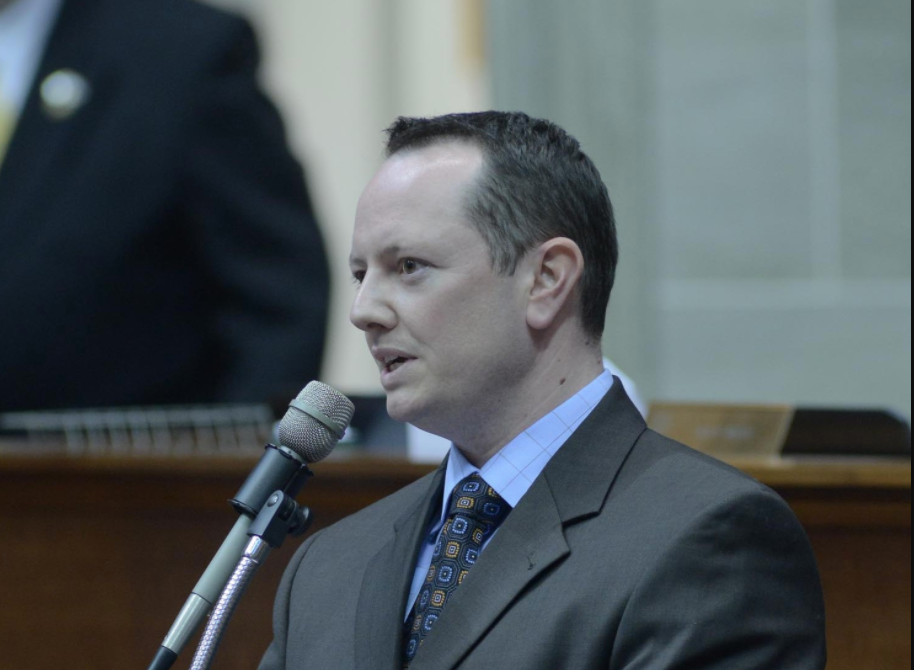10:00
News Story
Missouri bill targeting environmental protections moves ahead in House
Supporters say the bill would help businesses harmed by ‘aggressive’ environmental regulators.
Missouri legislators are moving forward with an effort to loosen the state’s environmental regulations that critics contend could harm the state’s water and air — and its budget.
Business groups and Republican lawmakers say the bill would help businesses that are treated unfairly by an “aggressive” Missouri Department of Natural Resources.
“At the end of the day, these are attacks on businesses and individuals,” Sen. Eric Burlison, a Battlefield Republican, told colleagues during a Senate committee hearing earlier this year.
The legislation, Senate Bill 40, limits state agencies’ ability to set fees for environmental permits and bars DNR from enforcing any hazardous waste regulations that are stricter than federal rules set by the Environmental Protection Agency.
But it was also amended to include a provision removing three counties near St. Louis from an emission monitoring program that could cost the state millions in federal highway funds.
It has already passed the Senate and been heard by a House Committee. Some senators are hoping the House will strip the emissions provisions and pass a bill closer to Burlison’s original version.
To environmental groups, the bill — even without the emissions standards provisions — represents nothing short of an “attack on environmental protection in Missouri.”
“Yes, business in the state of Missouri is important,” said Frances Klahr, who worked for DNR for 13 years and testified against the bill on behalf of the Sierra Club. “So are natural resources because the truth of the matter is if you don’t have natural resources, you aren’t going to have businesses.”
What the bill does
Burlison’s original legislation sought to remove the authority of the Hazardous Waste Management Commission, the Air Conservation Commission and the Clean Water Commission to set permit fees, starting in August.
The fees set under that process would be set to expire in 2024.
The bill also requires DNR, in the event of a fine, to provide information to violating businesses of the justification for the fine and document all efforts to resolve potential penalties through discussions with the violator.
And it would bar DNR from enforcing regulations any stricter than EPA standards. At issue, Burlison said, is DNR’s strict limits on trichloroethylene, a chemical often found in paint thinner and degreasers used on vehicles.
Burlison said several businesses running cave tours were threatened with closure because trichloroethylene, or TCE, was found in the water. It had made it there from upstream.
DNR declined to comment on pending legislation.
Supporters of the bill claimed DNR was imposing the restrictions based on guidance letters from the EPA, not formal regulations.
Rich Germinder, testifying to a House committee on behalf of DNR, said that was not the case.
“We do not enforce on guidance that has not been properly promulgated or is included in statute or is based upon a regulation,” he said.
Among the most controversial measures was the Senate’s decision to amend the bill to exempt St. Charles, Franklin and Jefferson counties from a vehicle emissions testing program designed to bring them into compliance with EPA standards for air quality.
According to the bill’s fiscal note, that could cost the state as much as $52 million in federal sanctions. The state could also lose the right to enforce its own air standards and be forced to turn the program over to the EPA.
While he thinks concerns about sanctions are overestimated, Burlison said he is working to make sure the House strips the emissions provisions from the bill.
During debate, senators worried about placing their trust in the House. Sen. Greg Razer, a Kansas City Democrat, described the Senate as the more deliberative chamber willing to put a stop to things.
“Often times when you go to the House of Representatives — things move much faster on that side of the building and some really bad policy comes out of that chamber,” he said. “And there is always just the thought on both sides of the aisle, ‘Eh, the Senate will fix it.’”
The bill passed the Senate 23-10 along party lines earlier this month.
Business vs. environment
The bill then moved to the House where it was heard by the House Emerging Issues Committee.
Rep. Tracy McCreery, a St. Louis Democrat, said the bill “appears to take an ax to the department of natural resources.”
To Republicans on the committee, it was a matter of returning authority to legislators even though the General Assembly already has the authority to throw out fees set by the commissions.
“Fundamentally, the entity making decisions on how anyone in the state of Missouri is being charged, taxed should not be by individuals who are not duly elected,” said Rep. Doug Richey, an Excelsior Springs Republican.
Supporters of the bill, primarily, are industry groups. Ray McCarty, president and CEO of Associated Industries of Missouri, said his organization had been working with Burlison on the legislation since last year.
“Especially for businesses that don’t deal with government every day, they see a government truck roll up and they immediately panic,” said McCarty said.
Some businesses that belong to his organization, McCarty said, have been working with DNR on cleanup issues for years only to see the rules change under them. Asked to provide more details about the businesses’ experiences or connect The Independent with them, McCarty said that because they are in discussions with DNR, they had shared information with him confidentially.
“But I can tell you that it’s not just limited to one or two companies or even companies,” he said, adding that in some cases, cities are struggling with the issue.
But environmental groups say the bill would have hugely detrimental effects on DNR’s ability to carry out its mission. Klahr said the bill would “destroy DNR and the function or purpose of DNR.”
It’s important, she said, to have DNR monitoring environmental issues, especially things like air quality, where Missourians may not be able to readily see what’s happening to the environment, but it affects them every day.
Over the years, Klahr said, Missouri, including DNR, has become far more business friendly. That’s not necessarily a bad thing.
But, she said, “you just can’t throw one under the bus for the benefit of the other.”
Correction: An earlier version of this story incorrectly stated when fees set by the Hazardous Waste Management Commission, the Air Conservation Commission and the Clean Water Commission would expire. The commissions’ authority to change the fees would expire later this year. The fees themselves would be set to expire in 2024.
Our stories may be republished online or in print under Creative Commons license CC BY-NC-ND 4.0. We ask that you edit only for style or to shorten, provide proper attribution and link to our website. AP and Getty images may not be republished. Please see our republishing guidelines for use of any other photos and graphics.





